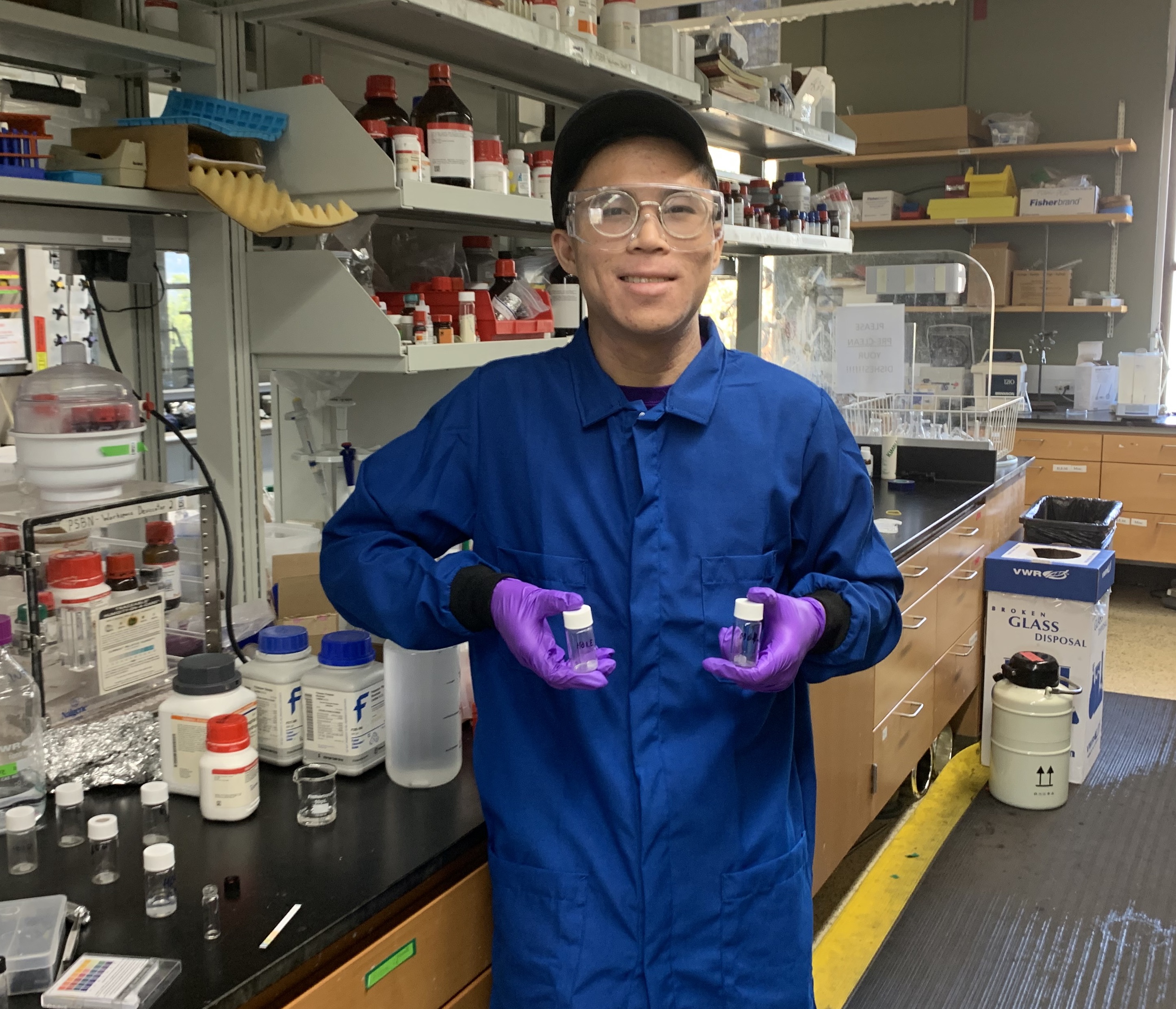
Modern biomedicine calls for easily-producible solutions to patients’ individual needs; additive manufacturing addresses this need through a blend of scale and customization. Current widely-used bioinks, however, either lack synthetic tunability or are not biodegradable (gelatin and poly(ethylene glycol), respectively). Therefore, advancing the technology requires a broader selection of biologically compatible and tunable materials. Polypeptide hydrogels hold particular interest for their biodegradability in physiological conditions, especially because of their tunable rate of degradation. A novel gel network was synthesized from a dye-conjugated polypeptide. The network was then subjected to both chemical and biological degradation conditions, with the degradation pathway characterized through fluorescence spectroscopy. Under chemical conditions, the polypeptide network degraded more rapidly than it did in biological conditions. Both conditions, however, showcased the network’s significantly higher structural integrity compared to that of the gelatin network, supporting the use of polypeptide hydrogels as a high-fidelity degradable bioink. Further characterization of our system’s degradation kinetics will constitute additional progress toward the development of bioresorbable implants and advanced drug delivery systems.